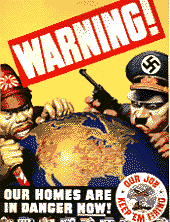-(Scene is from 3:50 to 5:53)
Soldiers who have fought in wars past have been made out to be cold-hearted killers by some historians, callous to the death and destruction which surrounds them in combat. Many movies also portray this idea; however, this is not how it is. The movie “Saving Private Ryan”, directed by Steven Spielberg, has a different idea of how soldiers carry themselves out in duty. In reality, soldiers are not cold-hearted killers who only follow orders, but rather feel sorry for what they have to do. Spielberg attempts to show that human life is always important, even in war. He shows this by creating a somber and bitter tone and by using different angles and shots seen in this scene.
Through the use of setting, lighting and close-ups, Spielberg is able to create a somber tone. The scene is set in time as the Invasion of Normandy has begun, with bloodied bodies strewn everywhere. In the final moments of the scene, the camera captures this feeling of emptiness and sadness when it pans across the beach to reveal the hundreds of bodies sprawled out while the waves keep coming, red with blood. The lighting of the scene also build up to this feeling of sadness, as the background always seems to be filled with clouds, smoke and fire, blocking out the sun and the warmth which comes with it. The lighting used in the scene also seems to symbolize a soldier’s thinking, as during times of war one has conflicting emotions. On one hand, they need to follow out the orders of their superior offices, but on the other, they value the lives of others, even though they are the enemy. This is seen in close-ups as well. In shots 1 and 14, they show Cpt. Miller’s face as he looks into the distance. His eyes portray a feeling of sadness as he looks at the death and destruction which lay in front of him, while clouds in the background block out any available light, showing his conflicting thoughts and judgment.
During the scene, a bitter tone is also established through the use of camera angles, reaction shots, and dialogue. In shot 11, a soldier is depicted after having just picked up some dirt and placing it in a cup labeled “France”. The director then creates a low-angle shot to show the man’s face as he looks out into the distance. This camera angle shows how the soldier is looked up to, as he begins to show emotion for what he has just done. He has realized that those lying dead are a result of him and others shooting them down, and begins to feel regret for his actions, showing that many soldiers believe that the taking human life is wrong, even in times of war. Along with the camera angles used, Spielberg has various reaction shots that build up to the bitterness felt during the scene. At one time during the scene, a soldier named Fish is portrayed breaking down to the thought of taking a knife from a German that has just been killed. In shot 7, there is a reaction shot showing the soldier who has handed Fish the knife deep in thought. He himself is bitter to the situation that has just unfolded, seemingly in pain as he looks down to avoid looking at his friend sobbing uncontrollably. During the scene, there are other reaction shots all showing basically the same emotion – sadness and regret. These tones are also portrayed through the limited dialogue used during the scene. At one point during the scene, Cpt. Miller is drinking from his canteen and looks down upon the beach he has just come from. The man next to him says, “That’s quite a view”, with Miller’s response simply being, “Yes it is. Quite a view.” Cpt. Miller begins to take in what has just happened and a feeling of bitterness envelops him as he realizes all the dead soldiers strewn on the beaches of Normandy. It is also apparent in the pitch of his voice that he is deeply saddened by the events which have unfolded around him.
Throughout the scene, Steven Spielberg employs various techniques to create a variety of tones. These tones build up to the idea that not all soldiers are killing machines, but rather feel the need to shield human life from destruction caused by war. Even though orders are placed to eliminate the enemy, people cannot get rid of this feeling of regret which comes with the task set before them.
